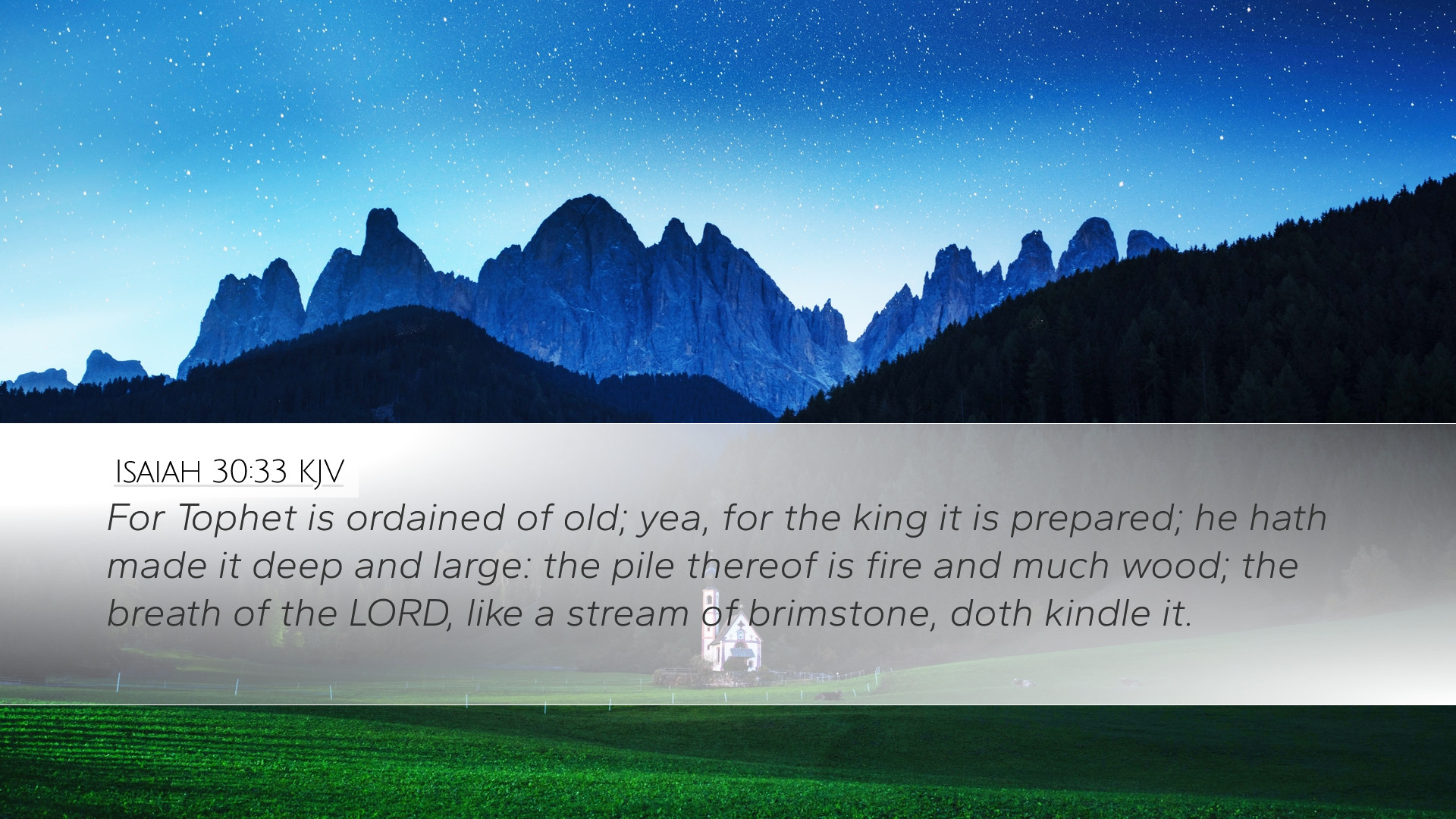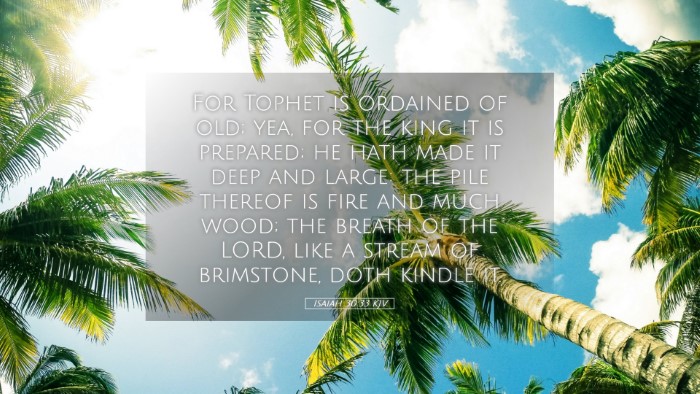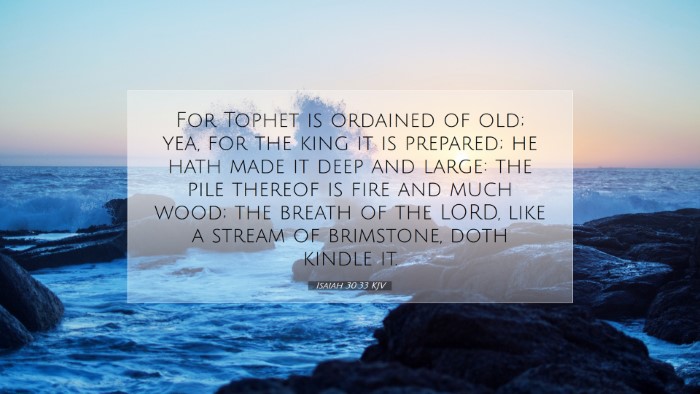Bible Commentary on Isaiah 30:33
Isaiah 30:33 states, "For Topheth is ordained of old; yea, for the king it is prepared: he hath made it deep and large: the pile thereof is fire and much wood; the breath of the Lord, like a stream of brimstone, doth kindle it." This verse concludes a discussion on judgment, particularly in relation to the people of Judah and their reliance on foreign alliances rather than on God. In this commentary, insights drawn from esteemed public domain sources such as Matthew Henry, Albert Barnes, and Adam Clarke will be synthesized to provide a comprehensive understanding of this verse.
Historical Context
Isaiah prophesied during a tumultuous period in Israel’s history when the nation was under threat from Assyria. In this context, the kingdom faced the temptation to rely on worldly alliances instead of trusting in the Lord. This verse serves as a stark reminder of the consequences of such choices.
Topheth: A Symbol of Judgment
Topheth was likely a place associated with the worship of false gods, specifically linked to child sacrifice (see 2 Kings 23:10). Matthew Henry notes that this place symbolizes the punishment awaiting those who reject God’s ways. The “fire” and “much wood” indicate that it was a place of destruction and a vivid image of the fate that awaits those who persist in sin against God.
The Sovereignty of God
Albert Barnes emphasizes that the preparations at Topheth were not random but had been “ordained of old.” This suggests divine foreknowledge and sovereign control over the fate that awaits rebellious nations. God's judgment is deliberate and inevitable, serving as a reminder to the people of Judah of the seriousness of their sin.
The Fire and Brimstone Imagery
The imagery of fire and brimstone, particularly in biblical literature, often signifies divine judgment and the purging nature of God's righteousness. Adam Clarke elaborates on the notion that the “breath of the Lord” kindles this fire, suggesting that it is God's own wrath that brings forth destruction. This highlights both the power of God and the gravity of ignoring His warnings.
Theological Implications
This verse, while a prophetic declaration of judgment, underscores crucial theological principles about God’s nature. First, it reminds us of God's justice; He does not allow sin to go unpunished. Second, it illustrates God's sovereignty in orchestrating human history and ensuring that His purposes are fulfilled. The metaphorical use of Topheth serves as a significant warning to those who stray from God's intended path.
Reflections on Repentance
Isaiah 30:33 serves as a pivotal reminder of the importance of repentance. The prophetic message clearly indicates that there are consequences for persistent sin. Matthew Henry suggests that this serves as a call for spiritual awakening and return to God. The consequences depicted here are not meant to incite fear but to encourage reflection on one’s standing before God.
Applications for Today
For contemporary believers, this passage presents significant applications:
- Trust in God Alone: Like Judah, modern believers are often tempted to rely on worldly solutions rather than seeking God’s guidance and provision.
- Awareness of Judgment: Understanding that God's judgment is real and consequences await those who stray can lead individuals and communities to a more earnest commitment to holiness and righteousness.
- Call to Repentance: The message is timely for every generation; it implores individuals to examine their lives, seek forgiveness, and realign themselves with God’s will.
Conclusion
Isaiah 30:33 serves as a powerful reminder of the nature of God's judgment and the importance of allegiance to Him. By drawing insights from esteemed commentaries, we gain a deeper understanding of the implications of this verse. It calls believers to consider their own lives in light of God’s holiness and righteousness, urging a return to trust in the Lord and His purposes.


